Featured
Plastic pollution flowing into oceans to triple by 2040: study

SINGAPORE (Reuters) – The amount of plastic waste flowing into the ocean and killing marine life could triple in the next 20 years, unless companies and governments can drastically reduce plastic production, a new study published on Thursday said.
Single-use plastic consumption has increased during the coronavirus pandemic, according to the International Solid Waste Association, an NGO. Face masks and latex gloves are washing up daily on Asia’s remote beaches. Landfills worldwide are piled high with record amounts of takeaway food containers and online delivery packaging.
The new research, produced by scientists and industry experts for The Pew Charitable Trusts and SYSTEMIQ, offers solutions that could cut the projected volume of plastic entering the ocean by more than 80%.
The roadmap for stemming the runaway ocean plastic waste crisis is among the most detailed ever offered in a study.
If no action is taken, however, the amount of plastic going into the sea every year will rise from 11 million tonnes to 29 million tonnes, leaving a cumulative 600 million tonnes swilling in the ocean by 2040, the equivalent weight of 3 million blue whales, according to the study published in the journal Science.
“Plastic pollution is something that affects everyone. It isn’t a ‘your problem and not my problem’. It’s not one country’s problem. It’s everyone’s problem,” said Winnie Lau, senior manager at Pew and co-author of the study.
“It’s going to get worse if we don’t do anything.”
The strategy laid out in the report includes redirecting hundreds of billions of dollars in plastic production investment into alternative materials, recycling facilities and waste collection expansion in developing countries.
This would require a U-turn by the energy industry, which is rapidly building new chemical plants around the world to boost plastic output as its traditional fuel business is eroded by a rise in cleaner energy sources.
Oil and soda
The amount of plastic produced annually has been climbing fast since 1950, when global production totalled 2 million tonnes. In 2017, that number was 348 million tonnes, and is expected to double again by 2040, the study estimates.
Big plastic makers, including ExxonMobil, Dow and Chevron Phillips Chemical, have said they are committed to tackling plastic pollution, despite increasing production. The projects they fund focus on cleaning up waste.
The paper recommends, however, governments implement laws to discourage new plastic production and provide subsidies for reusable alternatives.
The plastic industry has lobbied against government bans on single-use plastic.
Some of the biggest buyers of plastic are consumer goods companies like Coca-Cola, PepsiCo, Nestle and Unilever. They have all made commitments to use a greater amount of recycled content in products in the future.
But current government and corporate commitments will only reduce the amount of plastic flowing into the ocean by 7 percent by 2040, the Pew and SYSTEMIQ study finds.
To cut the flow of ocean plastic by 80%, paper or compostable alternatives to single-use plastic would be needed and packaging should be redesigned to more than double the share of recyclable material, the study says.
Some criticised the study’s inclusion of incineration, chemical recycling and plastic-to-fuel plants as ways to dispose of waste, saying these methods involve the release of climate-warming carbon emissions while also helping to sustain plastic production.
Instead, “we would be putting more emphasis on the need for reduction and stemming production of plastics,” said Von Hernandez, global coordinator at Break Free From Plastic, an NGO.
“If industry were allowed to continue with their projections of growth up to 2050, which quadruples production during this time, most of the recommendations from this report will be meaningless.”
Reporting and photo: Reuters
Cooking
Patina Maldives hosts Chef Shannon Bennett for exclusive April residency

From 1 to 5 April 2026, Patina Maldives, Fari Islands will host Shannon Bennett, one of Australia’s most recognised culinary figures and the creative force behind Belongil. The residency brings together a chef known for shaping dining as an emotional and reflective experience with a destination defined by perspective, creativity and purpose.
Bennett’s career extends beyond traditional notions of cooking. Through projects such as Vue de Monde and Belongil, he has explored dining as a medium for memory, connection and emotion, placing emphasis on experience rather than consumption. His approach centres on creating moments that remain with guests long after the meal has ended.
At Patina Maldives, the residency represents a convergence of shared values. Over five nights, guests are invited to take part in a limited series of dining experiences shaped by intention, curiosity and a sense of place. Rather than recreating Belongil in another setting, the programme evolves its philosophy, drawing inspiration from the natural rhythm and clarity of the Maldivian environment.
Commenting on the collaboration, Bennett said Belongil was conceived as more than a place to eat, but as a space for ideas, connection and lasting moments. He noted that Patina Maldives reflects a similar sense of purpose, adding that bringing his work into the island setting offered an opportunity to create experiences that feel grounded, honest and meaningful.
Patina Maldives continues to develop its identity by providing a platform for global creative voices to shape new conversations and perspectives. The residency with Bennett aligns with this approach, positioning cuisine as one element within a broader cultural and experiential narrative.
Tom Bray, Director of Lifestyle at Patina Maldives, said the resort exists to bring people closer to ideas, creativity and self-discovery. He added that welcoming Bennett reflects this philosophy, describing the residency as an experience designed to shift perspective rather than focus solely on gastronomy.
The residency is presented as an experience defined by intention rather than spectacle. Taking place over five nights on a single island, it brings together Patina Maldives and one of the culinary world’s most reflective minds for a programme shaped by presence, purpose and a sense of moment that cannot be replicated in the same way again.
Featured
You & Me Maldives unveils curated Premium All Inclusive programme
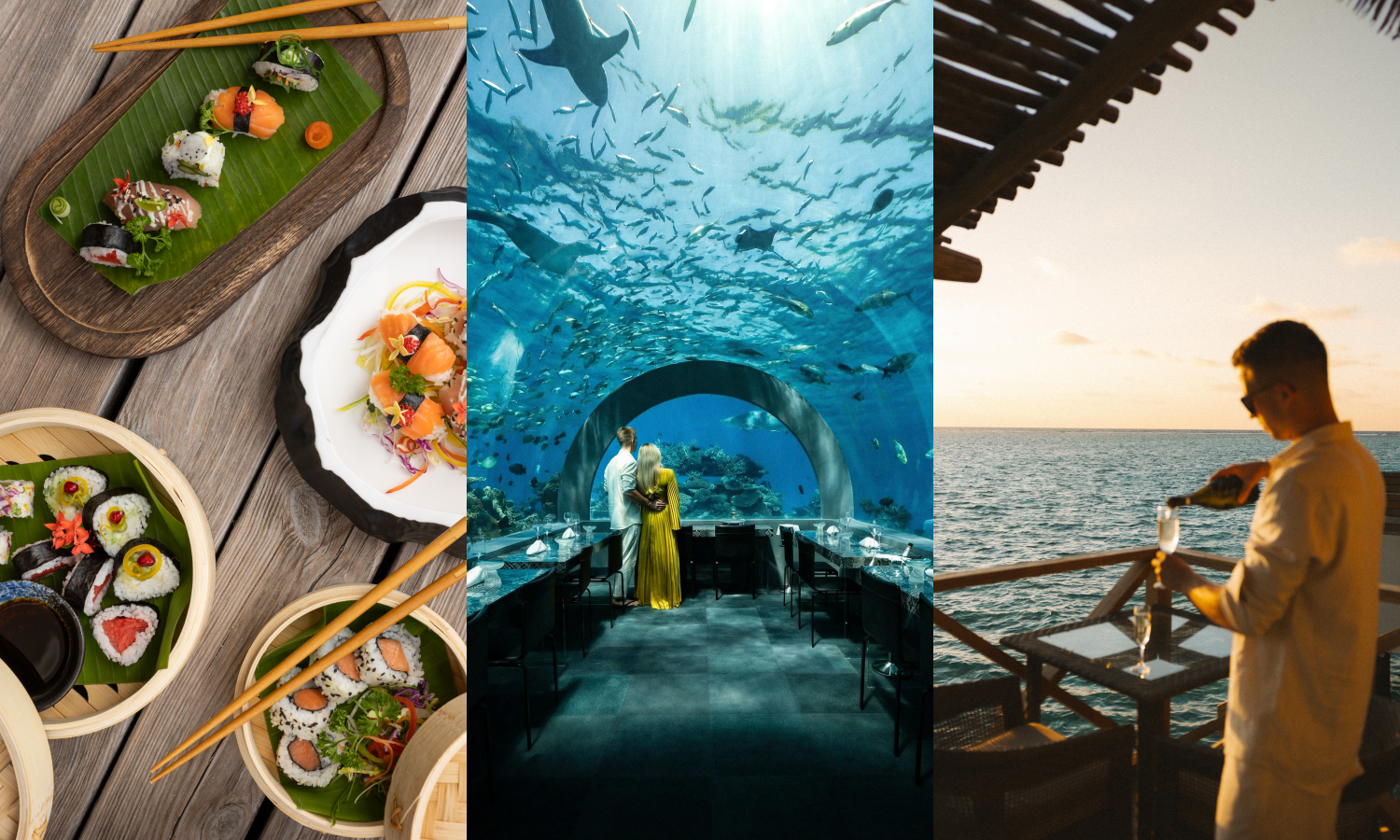
You & Me Maldives, the adults-only luxury retreat under The Cocoon Collection, has announced the launch of its new Premium All Inclusive experience, aimed at enhancing island stays through a more seamless and comprehensive offering in the Indian Ocean.
The Premium All Inclusive experience is designed to begin from the point of arrival. Guests receive complimentary access to The Cocoon Collection Lounge at the seaplane terminal at Velana International Airport, where services are provided to ensure a smooth transition before the journey to the resort.
On arrival at the island, guests are welcomed in their villas with a chilled bottle of sparkling wine and a selection of canapés. The Premium All Inclusive plan includes unlimited premium beverages by the glass, featuring a curated range of wines, signature cocktails, top-shelf spirits, international beers and non-alcoholic options. The in-villa minibar is replenished daily with soft drinks, international beers, red and white wines, as well as assorted snacks. For stays of five nights or more, guests also receive two bottles of premium liquor from a selected list, provided once during the stay.
The experience further includes a range of activities. Guests staying a minimum of three nights are offered one sunset cruise and one snorkelling excursion per stay, while those staying seven nights or more are entitled to a catamaran cruise. Unlimited use of snorkelling equipment and non-motorised water sports, including canoeing, kayaking and paddle boarding, is also included, subject to weather conditions.
Dining forms a central part of the Premium All Inclusive concept. Guests can enjoy three themed dining evenings, including a seafood barbecue under the stars featuring prawns, lobster and oysters. For stays of five nights or more, guests may also take part in a complimentary group cooking class, with a choice between ethnic or Italian cuisine, led by the resort’s culinary team.
Wellness offerings are also incorporated into the programme, with guests able to participate in up to three complimentary sunrise yoga sessions per stay, subject to availability.
The introduction of the Premium All Inclusive experience reflects the resort’s focus on personalised service and carefully curated stays. The offering is positioned to appeal to couples seeking relaxation, romance or activity-led experiences within an adults-only island setting.
Featured
Eid celebrations at SO/ Maldives blend Arabic tradition and Maldivian culture

SO/ Maldives is inviting global travellers this season to reimagine Eid not merely as a holiday, but as an immersive island escape. Located just 15 minutes by speedboat from Malé, the fashion-forward private island retreat sets the stage for a celebration where cultural heritage, contemporary luxury and tropical glamour come together.
At the centre of the festivities is an authentic culinary experience at Hadaba, the resort’s award-winning Arabic restaurant. Guests are offered Levantine flavours, artisanal mezze and traditional recipes presented with a modern approach, creating a setting for shared dining and celebration. As part of the resort’s dine-around concept, Hadaba can be included in a wider culinary journey across the island, allowing guests to experience Arabic cuisine alongside the resort’s other dining venues.
As evening falls, celebrations move to Lazuli Beach Club, where shisha rituals and Arabic-inspired refreshments are served in a beachfront setting. Traditional performances are complemented by Maldivian Boduberu drumming and fire dance displays, creating a cultural programme designed to appeal to international travellers seeking meaningful experiences.
Across the island, Eid is marked through a series of curated activities aimed at encouraging connection and creativity. Cultural workshops, including palm-leaf artistry and henna sessions, offer opportunities to explore heritage, while younger guests are engaged through themed crafts, interactive games and sweet treat decorating. The overall atmosphere remains celebratory while maintaining a relaxed pace that reflects the resort’s character.
Beyond the festive programme, the resort positions the long weekend as a fully immersive island retreat. Guests stay in beach and overwater villas featuring private pools and ocean views, with interiors inspired by high fashion. Time is spent between spa treatments, lagoon activities, beach club experiences and sunset dining, balancing celebration with seclusion.
To mark the season, the resort has introduced two limited-time stay offers. The One Night on Us offer provides savings of 33 per cent on stays of three nights or more, along with daily breakfast, complimentary transfers and spa privileges. The Soo Summer package offers preferential rates combined with spa experiences, curated dining inclusions and additional benefits for water villa stays.
Welcoming travellers from Europe, Asia, the Middle East and beyond, the resort presents Eid as a global celebration where Arabic traditions, Maldivian culture and contemporary design are brought together. This season, guests are invited to exchange routine for island surroundings and experience Eid through a redefined island perspective.
-
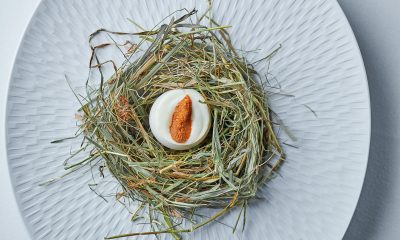
 Cooking1 week ago
Cooking1 week agoA spring of flavours: Nowruz dining series at JW Marriott Maldives Resort & Spa
-
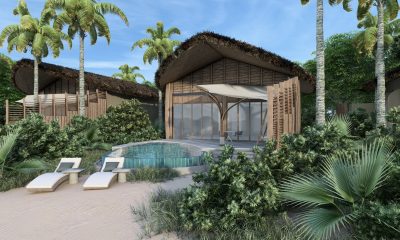
 News1 week ago
News1 week agoPulse Hotels & Resorts unveils Aura Maldives, a mindful luxury sanctuary
-
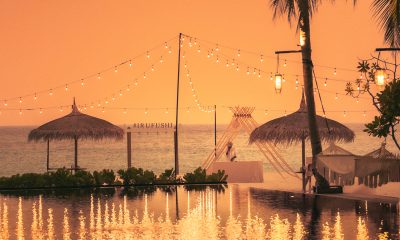
 News1 week ago
News1 week agoSun Siyam Iru Fushi sets new nenchmark with 24 Hour Premium All Inclusive Dine Around
-
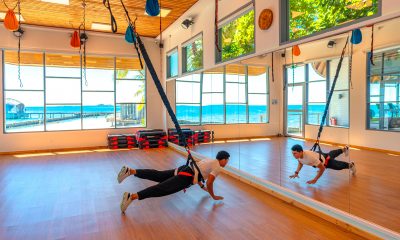
 Fitness1 week ago
Fitness1 week agoOUTRIGGER Maldives Maafushivaru launches expanded wellness programming for 2026
-
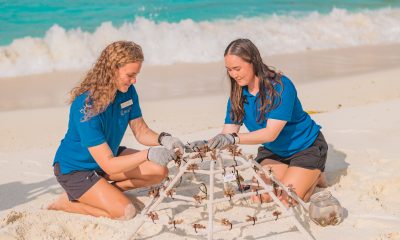
 Action1 week ago
Action1 week agoSheraton Maldives Full Moon celebrates sixth anniversary of Reefscapers collaboration
-
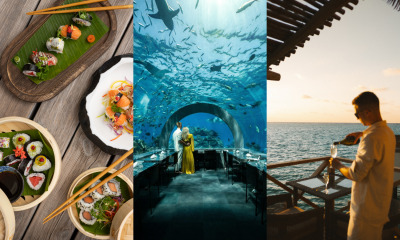
 Featured1 week ago
Featured1 week agoYou & Me Maldives unveils curated Premium All Inclusive programme
-
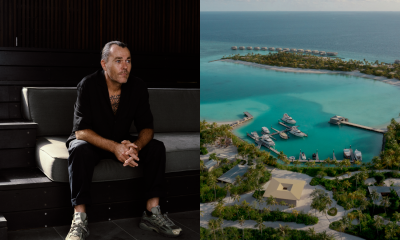
 Cooking1 week ago
Cooking1 week agoPatina Maldives hosts Chef Shannon Bennett for exclusive April residency
-
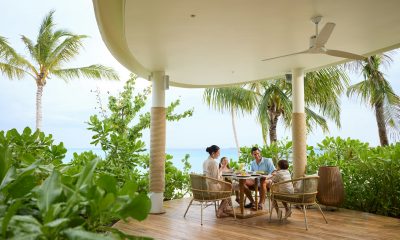
 Awards7 days ago
Awards7 days agoCentara Mirage Lagoon Maldives named Luxury Family Friendly Resort of the Year









